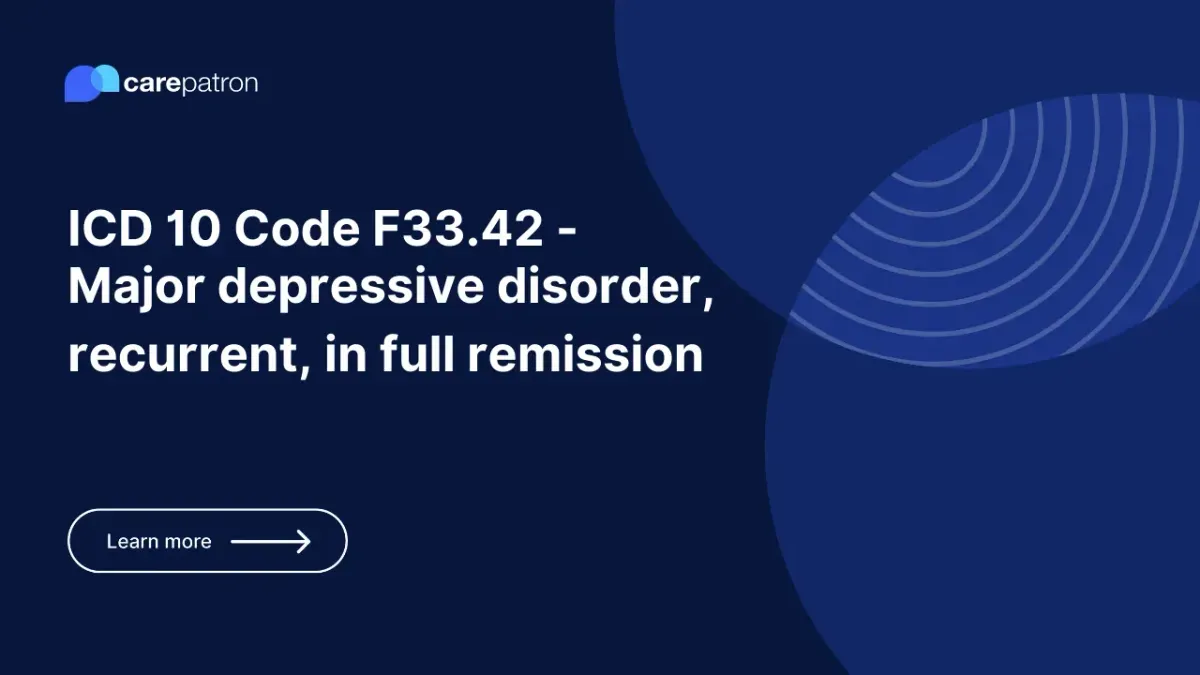
F33.42 – Major depressive disorder, recurrent, in full remission
Understand what F33.42 - Major depressive disorder, recurrent, in full remission in ICD-10-CM means, its clinical information, related codes, and FAQs.
Use Code
Commonly asked questions
Full remission indicates that a patient no longer exhibits significant symptoms of their depressive disorder and has essentially recovered.
Yes, if a patient with a history of recurrent depressive episodes is not experiencing any significant symptoms, they are in full remission.
While patients in full remission have recovered from their depressive episodes, they may still require ongoing treatment to maintain their mental health and prevent relapse.
EHR and practice management software
Get started for free
*No credit card required
Free
$0/usd
Unlimited clients
Telehealth
1GB of storage
Client portal text
Automated billing and online payments
